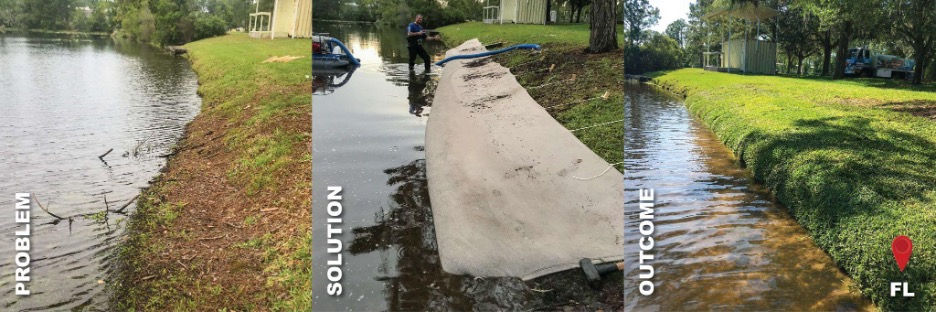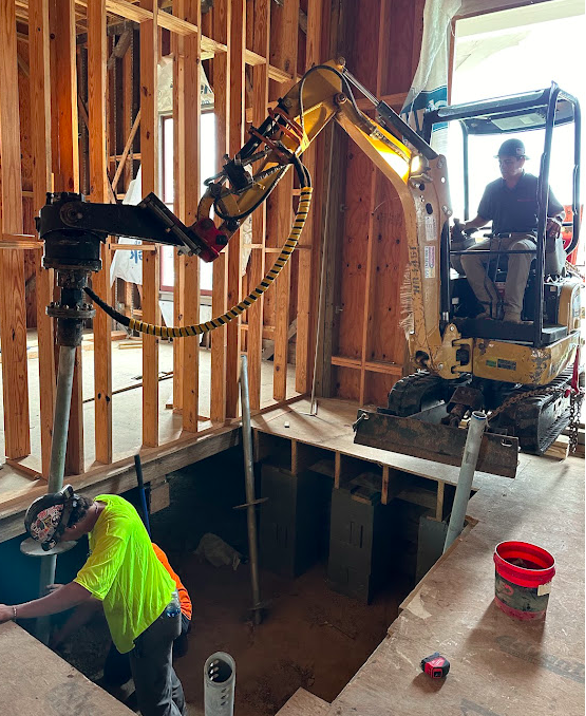How Humidity and Rainfall Affect Residential Foundations in Mississippi
- burns68
- Mar 10, 2025
- 4 min read

Mississippi homeowners enjoy lush landscapes and plenty of natural beauty—but the state’s high humidity and heavy rainfall can take a toll on residential foundations. Understanding how the local climate influences soil conditions and your home’s structural integrity is essential for proactive maintenance and long-term stability.
Explore below how humidity and rainfall affect foundations and the signs that may indicate it’s time to schedule residential foundation repair in Mississippi.
Understanding Mississippi’s Climate
Mississippi falls under a humid subtropical climate, characterized by long hot summers, mild winters, and abundant rainfall throughout the year. While the moisture in the air helps keep landscapes green, it also leads to consistently high humidity that hovers between 70-80%.
Heavy rainfall is also common—usually between 50 to 65 inches per year. These factors create a dynamic environment for the soil around your home. When the ground consistently absorbs water—or alternates between wet and dry cycles—it can shift and expand, eventually stressing your foundation.
Why Humidity Matters
Moisture Retention in Soils
During periods of high humidity, moisture in the air can be absorbed into the top layers of soil. Over time, this extra water content may lead to soil expansion, particularly in areas with clay-rich soil. As the soil swells, it can push against or unevenly lift the foundation.
Condensation and Crawl Spaces
Many homes in Mississippi feature crawl space foundations. High humidity increases the likelihood of condensation forming on interior surfaces, floor joists, or other structural components. Left unchecked, excessive moisture under the home can lead to wood rot in beams and joists, mold growth, and the weakening of support structures.
Decreased Evaporation Rates
When humidity is high, water takes longer to evaporate, meaning wet soil around your home may remain saturated for extended periods. Prolonged saturation makes your foundation more vulnerable to settling, cracks, and other structural issues.
The Impact of Heavy Rainfall
Soil Saturation and Expansion
Mississippi’s frequent thunderstorms and steady rains can quickly saturate the soil around a home. Expansive clay soils common in certain parts of the state will swell with water, exerting lateral pressure on foundation walls. This pressure can lead to bowing or cracking in basement or crawl space walls, as well as uneven floors and other structural concerns.
Erosion and Washouts
In areas without proper drainage or grading, rainwater can erode the soil around the foundation, creating voids or channels beneath it. When the soil is washed away, the foundation may settle unevenly, resulting in structural cracks, sticking doors and windows, and sloping floors.
Flooding Risks
Heavy rain events or storm surges along the Gulf Coast may cause flash flooding, inundating the foundation with water. Even a short period of flooding can damage the foundation’s materials, wash away supporting soil, and encourage mold or mildew growth if water seeps inside the home.
Warning Signs of Foundation Damage
Be on the lookout for early indicators that humidity and rainfall are impacting your foundation:
Cracks in Walls or Floors: Fine hairline cracks might be normal as a house settles, but larger or widening cracks—especially in a stair-step pattern—can signal trouble.
Sticking Doors and Windows: If humidity or soil movement is causing your home to shift, doors and windows may not open or close as easily as before.
Sloping or Uneven Floors: Floorboards that sag or tilt could mean the foundation is settling unevenly.
Bowing or Leaning Walls: Excessive lateral pressure from expanding soil may push basement or crawl space walls inward.
Gaps Around Windows and Doors: Visible gaps where frames meet walls can indicate shifting.
Protecting Your Home Against Moisture Damage
Fortunately, there are several things you can do to protect your property from foundation problems. Proper drainage is key. Keep your gutters and downspouts clean and in good repair. Redirect downspouts at least 5-10 feet away from the foundation and ensure the soil slopes away from the house on all sides.
For crawl space foundations, consider installing a vapor barrier on the ground surface to help reduce moisture. Ventilation systems can also be helpful, as adequate airflow under the home helps control humidity and prevents condensation. After periods of heavy rain, keep an eye out for pooling water or changes in soil. If you see cracks or other signs of foundation trouble, schedule an inspection with a foundation repair specialist in Mississippi.
When to Call a Professional
While some moisture control methods like cleaning gutters or adjusting landscaping are DIY-friendly, more serious symptoms—such as pronounced foundation cracks, severe bowing walls, or frequent flooding—require professional intervention.
Experienced foundation repair contractors in Mississippi can diagnose the root cause of damage (e.g., soil erosion, expansive soils, poor drainage), recommend the most suitable repair method, and ensure long-lasting solutions. Taking the proper steps ensures permanent solutions that stabilize your foundation and prevent recurring issues.
Residential Foundation Repair in Mississippi
Mississippi’s humid subtropical climate and heavy rainfall make moisture management a critical part of homeownership. By understanding how humidity and rainfall affect residential foundations, you can help preserve your home’s structural integrity for decades to come. If you suspect foundation issues, don’t wait: contact Foremost Foundations and Construction to assess the problem and safeguard your home against further harm.




Comments